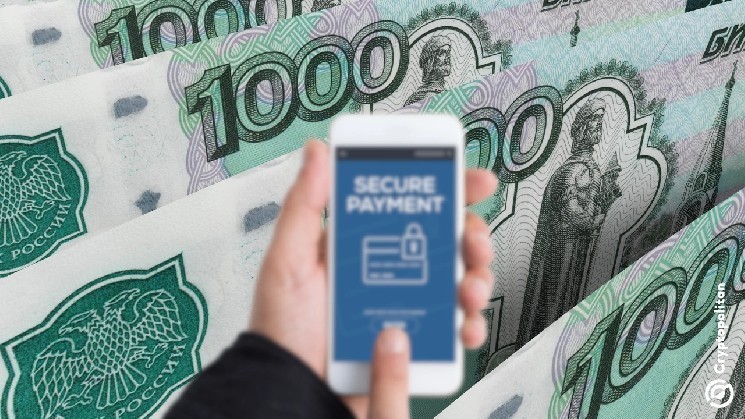Russian protection and know-how conglomerate Rostec has created a digital token pegged to the ruble and developed a proprietary fee platform.
The state-owned company stated it hopes to see the token, which is predicated on a significant blockchain, listed on main cryptocurrency exchanges and added to fashionable wallets.
Rostec unveils Tron-based ruble token and new fee system
Russia’s Rostec, a significant developer and producer of army, industrial, and technological gear sanctioned by the West, has introduced the launch of a token referred to as RUBx and a fee platform named RT-Pay.
The 2 have been developed as a part of its technique for digital transformation and type a brand new monetary ecosystem meant to offer each corporations and particular person customers with “secure and environment friendly” funds of any scale, the group insisted in a press launch. It additionally detailed:
“RUBx is predicated on the Tron blockchain. Its code will probably be posted on GitHub, and it’ll even be verified by the impartial worldwide firm CertiK.”
Tron, launched by Chinese language-born entrepreneur Justin Solar in 2017, has received its recognition due to a excessive throughput and comparatively low charges, RBC remarked in a report. The community makes use of the TRC20 normal, and the best-known such token is the main stablecoin, the U.S. dollar-pegged Tether (USDT).
The RUBx token is pegged to the Russian nationwide fiat, the ruble. “Every RUBx is backed by actual obligations in rubles. Тhis is legally fastened. The token to actual ruble ratio is one to 1,” emphasised Alexander Nazarov, deputy director basic of Rostec.
The token shouldn’t be confused with the digital ruble, the brand new type of authorized tender issued by the Financial institution of Russia. Trials with the central financial institution digital foreign money began two years in the past, and in line with the most recent timetable introduced by the financial authority, the CBDC ought to be launched by September 2026.
Russia makes one other transfer to bypass sanctions
Rostec’s administration was clear that it views the creation of the RUBx token and the RT-Pay platform as a step in direction of strengthening the Russian Federation’s “digital monetary sovereignty.” Nazarov elaborated additional:
“Digital devices have gotten an integral a part of the economic system, and our process is to supply the market an answer that meets the brand new necessities for reliability, safety and technological independence.”
Dealing with mounting monetary restrictions, imposed as a part of sanctions over Moscow’s invasion of Ukraine, Russian corporations have been coping with restricted entry to conventional monetary channels of their commerce with companions overseas.
This has led to a rising use of cryptocurrencies, stablecoins particularly, in cross-border settlements and funds by each companies and residents inside an “experimental authorized regime” for such transactions.
Nevertheless, utilizing international stablecoins has proved problematic, as proven by Tether’s freezing of two.5 billion rubles’ price of USDT ($27 million on the time) in wallets hosted by the sanctioned Russian crypto alternate Garantex earlier this 12 months.
In April, media stories revealed that the Russian finance ministry considers issuing a Tether-like Russian stablecoin pegged to a fiat foreign money apart from the U.S. greenback.
The RT-Pay system will probably be built-in into Russia’s present banking infrastructure, whereas permitting for settlements with exterior digital wallets or good contracts.
The plan is to launch it this 12 months and in phases, taking account of the wants of varied sectors of the Russian economic system, stated the top of the RUBx undertaking, Dmitry Shumaev, who additionally highlighted:
“Explicit consideration will probably be paid to safety points and integration with present monetary infrastructure. Sooner or later, the ecosystem might grow to be the premise for an entire vary of progressive monetary providers.”
Its safety will probably be ensured by holding a number of the tokens in “chilly” storage, whereas the remaining will probably be stored in shortly accessible wallets with multi-layered safety.
The RT-Pay platform is absolutely compliant with Russian regulation, together with Financial institution of Russia’s necessities and anti-money laundering requirements, the state-run company assured.
Customers will have the ability to purchase and promote the RUBx token via a web based portal, however Rostec, which was among the many first Russian entities sanctioned proper after the annexation of Crimea in 2014, believes it’s going to finally seem on main crypto exchanges and in fashionable wallets.









